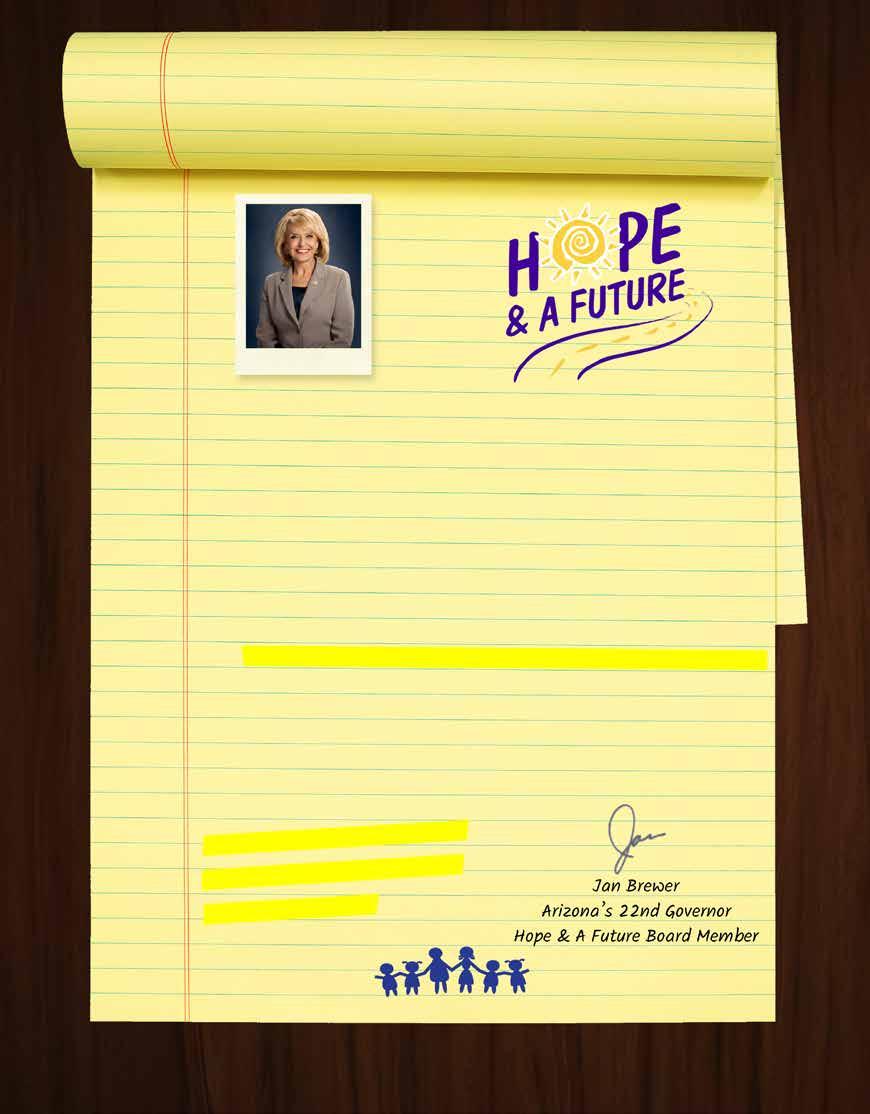
8 minute read
Recovering From Toxic Stress
by ASCPA
A CPA’s Personal Journey to Managing Tax Season
by Jay Allen Varcoe, CPA, MBA
Advertisement
This is the “busy” time of year for most CPAs and for most of us it is really the “too busy” season. I’ve been through 26 “too busy” seasons and for me “too busy” also means too much stress in my life. Add on top of that, the additional pressure of setting high standards and trying to provide perfection for each and every client. Nobody wants to let a client down by missing something or making an error, and I think most CPAs want to prove their worth with each engagement despite occasional self-doubt. Eventually I began to joke with my wife that one day during a tax season she might find me dead at my desk as I struggled with never-ending stress that I always felt at that time of year. It was not a good joke, and I soon realized that the joke was hitting too close to home.

Everyone handles the stress of busy season a little bit differently, but if you are feeling constantly stressed from early in January through April 15, be careful. Stressful situations are a part of life, but long-term stress becomes toxic. Chronic stress will take a mental and physical toll on your body.
The American Institute of Stress reports that chronic stress can certainly affect emotions, mood and behavior, but it also takes a toll on your physical body (www.stress.org). They illustrate that stress can trigger and intensify headaches and lead to back aches. Stress can cause heartburn, leave you short of breath, increase the risk of heart attack and can lead to depression. Stress can weaken your immune system, influence high blood pressure, cause nausea, and even increase your risk for Type 2 Diabetes. With all of these risks related to stress, who would have thought that public accounting would be such a dangerous profession? My mother, Marilyn J. Varcoe, Ph.D. wrote and published a book in 2004 entitled, Toxic Stress: 7 Steps to Recovery, which details examples of the effects that toxic stress had on many of her patients over her career as a psychologist and provides insights into some of the methods you can use to recover from toxic stress. Her book helped me to realize that I needed to be proactive and try to reduce my stress levels during tax seasons or else my joke with my wife could become closer to reality than I would like.
Before reading my mother’s book, I had been letting my tax season evolve on its own without proactive management. I just let the work flow in, and then I would exert all of my effort to get the work finished in order to endure the next wave of work without drowning. I barely kept my head above water. With so much work and so little time, how could I take those precious moments and waste them on exercise? Sleep was for the weak. I did not have time to sit down for a good meal; it was fast food at my desk for me in order to plow through the work. When clients were surprised by how much tax they owed, a quick ice cream or cookie break would ease the stress for the moment but led to gaining at least 10 pounds each tax season. I finally realized that I had been doing everything wrong.
With my new understanding and perhaps some fear motivating me, the next tax season I began to make some changes:
(1) I started tax season early. I began to actively manage the flow of client work including offering free tax projections in November. This gave me a head start at looking at my clients’ tax situations.
Providing tax planning added tremendous value to my clients because we were able to investigate and implement tax saving strategies and more importantly to me, they were not surprised by any tax liabilities that they owed when it was time to file their returns in March or April. As a result, the stressful confrontations of clients during tax season dropped significantly and I was able to be more effective as a tax advisor.
(2) I contacted clients early to set up tax appointments. Sometimes my clients were not ready to commit to a date yet, but the call put me on their radar so this led to them providing me their documents earlier than in the past. I proactively used my calendar to control the flow of information into my firm, and I left cushions of time without appointments in order to keep a steady and even flow of work. I managed expectations for my clients by projecting workflow and as a result, work flowed smoother and returns were generally finished earlier than in the past.
(3) I got more sleep. With my new calendar approach, I set aside time for eight hours of sleep each night and a full hour for a real dinner and time with my family. To be honest, I did not always stick to the plan, but it was a definite improvement and my family appreciated seeing me. It made me acknowledge that “too busy” season was tough on my
family too.
(4) I took more breaks. Throughout the day, I would take periodic breaks to walk outside of my office. It got my blood flowing and it also helped me to reset my mind. The benefits of being able to refocus made up for the lost time. It is tempting to plow through work, but I found the breaks did more to help my productivity over the course of the day.
(5) I used mindfulness to become more efficient. I focused upon one task at a time without trying to multitask. I researched and implemented breathing and centering techniques to help me stay on track.
(6) I ate for energy I replaced my ice cream and cookies with healthier snacks like carrot sticks and apples. Sugar provides that quick boost but then be ready for the crash. I was not able to resist stress eating sugary snacks entirely, but I could tell that just making the effort made a difference in my energy.
(7) I started training my mind. Most importantly, I worked upon my own thoughts in my mind to realize that not every situation is life threatening, and there was no reason for me not to be confident in my abilities. I realized that I might not remember all of the tax rules like my favorite CPE instructors, Ed Zollars or Pat Garverick, but I knew what I was doing. A funny thing happened once I relaxed about being perfect. By realizing that a mistake would not put me out of business, I made less of them. In a sense, I had prepared for the game; I had a game plan and now it was time to execute and do what I was meant to do. It had become my time to shine and not my time to drown.
Once I implemented these changes, it was easier to live through each tax season because although I still felt stress at times, I no longer felt like I was under the weight of constant stress. Not to mention, I could always look forward to my vacation that was planned for in May! l
Jay Allen Varcoe, CPA, MBA, ELI-MP, is a member of the ASCPA and a business coach. Before Jay graduated from the coaching school iPEC and obtained his Energy Leadership credential, he ran his own certified public accounting firm, Varcoe CPA, PC, for 20 years. Varcoe is also currently an adjunct accounting professor at Grand Canyon University. More information about him can be found at www.jayvarcoe.com. Contact him at (602) 524-5275 or jay@varcoecpa.com.
Christopher Brophy College Preparatory ‘ 20 2020 National Merit Commended Scholar

You can redirect your Arizona income tax liability to Brophy Community Foundation and provide K-12 students educational opportunities through critical tuition aid.
For Individual Tax Credit Donations Kait Williams, Business Manager 602.264.5291 (x6500) kwilliams@brophyprep.org For Corporate Tax Credit Donations Dawn Kennedy, Executive Director 602.264.5291 (x6521) dkennedy@brophyprep.org
www.brophyfoundation.org 4701 North Central Avenue Phoenix, AZ 85012
The Brophy Community Foundation has NEVER accepted donor designated contributions. Arizona law now requires all school tuition organizations to print the following notice on all printed material and websites: A school tuition organization cannot award, restrict or reserve scholarships solely on the basis of donor recommendation. A taxpayer may not claim a tax credit if the taxpayer agrees to swap donations with another taxpayer to benefit either taxpayer’s own dependent.
5














